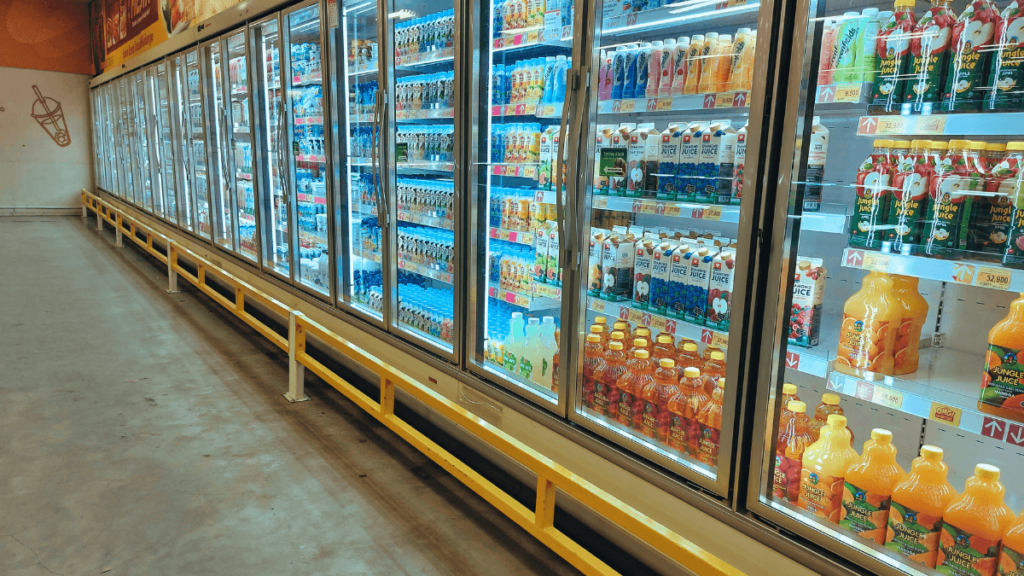New Delhi: The FMCG (Fast-Moving Consumer Goods) industry is anticipating subdued low to mid-single-digit sales volume growth in the July-September quarter. This is due to challenging macroeconomic conditions, including escalating food prices and deficient rainfall in certain regions, which are impeding the recovery of rural demand. Companies like Marico, Dabur, and Godrej Consumer Products Ltd (GCPL) have reported in their quarterly updates that although there has been an uptick in consumption during the second quarter, the rebound has been gradual.
Furthermore, this year’s festive season has been entirely shifted to the third quarter, causing delays in festival-related sales that will carry over into the next quarter, according to the companies.

Regarding their gross margins, the companies expect sequential improvement, bolstered by moderating inflation and reduced price increases. This has also enabled them to allocate more substantial budgets for Advertising and Promotions (A&P) spending.
In its business performance update for the September quarter, GCPL stated, “In India, we observed challenging macroeconomic conditions and adverse weather during the quarter.”
The FMCG arm of the Godrej Group encountered a “challenging operating environment,” yet its organic business still achieved “mid-single-digit volume growth.”
Marico, the proprietor of brands such as Parachute, Saffola, and Hair & Care, noted that demand patterns in the second quarter of FY24 closely mirrored those of the preceding quarter. The company remarked, “Rising food prices and below-average rainfall in certain regions appeared to hinder the anticipated recovery in rural demand,” adding that “in this context, domestic sales volume grew in the low single digits year-on-year.”
Marico continued to witness “favorable trends” in sales, market share, and penetration across key product lines. Its newer portfolios, including food and premium personal care products, remained on track to achieve their full-year targets.
Dabur India observed that FMCG consumption was improving year-on-year, albeit gradually. The company noted, “This quarter experienced a mild summer and slightly below-average monsoon. The delayed timing of this year’s festive season has resulted in festival-related sales being deferred to the next quarter.”
The company anticipates that its consolidated revenue will achieve mid to high single-digit growth in Q2.
With regards to rural demand, Abneesh Roy, Executive Director at Nuvama Institutional Equities, pointed out that there were some signs of improvement in the first quarter of FY24. However, due to extremely weak rainfall in August (reaching a 100-year low), rural demand has once again weakened.
“September has seen improved rainfall with a 13 percent surplus, but it has not yet stimulated spending in rural areas, given the shift in festival demand,” he remarked.
Rural sales constitute approximately one-third of FMCG industry sales through small-value packs. However, they have been under pressure for the past 6-7 quarters, with signs of improvement in the previous April-June quarter.
Roy also highlighted that companies with a focus on urban markets, such as Nestle, Tata Consumer Products Ltd, GCPL, and Colgate Palmolive, may have a competitive edge.
Furthermore, he added, “The international businesses of most companies are likely to outperform their respective Indian operations.”
Regarding the performance of its international business, Dabur mentioned that it “is poised for a robust performance, with double-digit growth in constant currency, led by the Middle East, Egypt, and Turkey.”
Similarly, Marico’s international business achieved “double-digit constant currency growth,” and GCPL’s business in Indonesia, its second-largest market after India, “continues to deliver improved performance, with double-digit volume and value growth.”
FMCG companies are optimistic about a stronger performance in the next quarter and the second half of the year.
Marico stated, “Consumption trends, particularly in rural areas, are expected to improve in H2 due to retail inflation staying within the RBI’s target range, an increase in Minimum Support Prices (MSPs), a healthy sowing season, reduced liquidity pressures, and government spending.”
Dabur also anticipates a recovery in consumption in both urban and rural markets in India due to improving macroeconomic indicators, increased government spending, and positive consumer sentiment.